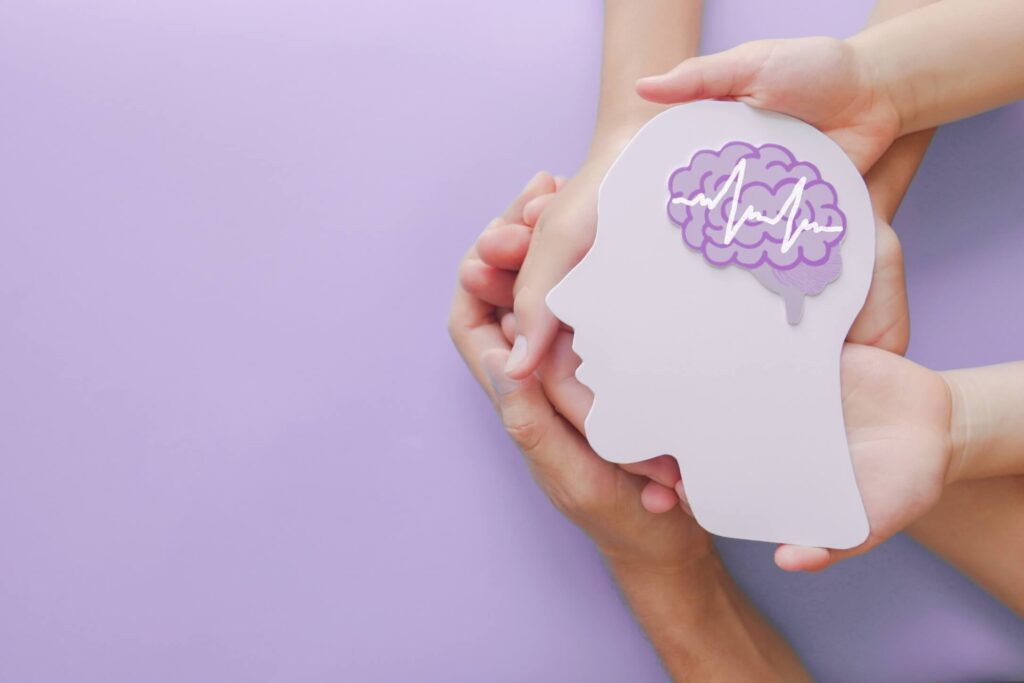Epilepsy: Causes, Symptoms and Treatment | Dr Abhinav Gupta
Epilepsy is a neurological disorder that affects millions of individuals worldwide. It can have a significant impact on their daily lives, causing seizures and other associated symptoms.
There are various causes of epilepsy, including genetic factors, brain injuries, infections, and brain tumors. The condition can be diagnosed through medical history assessment, neurological examination, and EEG tests.
Treatment options for epilepsy include anti-epileptic drugs, a ketogenic diet, and surgical interventions. However, epileptic individuals can also manage their condition effectively through lifestyle changes, developing a seizure response plan, and seeking support from a network of healthcare professionals, family members, and friends.
In this article, we will explore the causes, symptoms, diagnosis, treatment, and management of epilepsy, as well as its link with mental health. We will also provide answers to some frequently asked questions related to epilepsy.
What is epilepsy?
Epilepsy is a neurological disorder that affects the brain’s electrical activity, causing recurrent seizures. These seizures can vary in intensity, duration, and type, and can occur spontaneously or triggered by specific factors.
During a seizure, the brain’s normal electrical activity becomes disrupted, resulting in abnormal or excessive electrical impulses that can cause various physical and mental symptoms. Epileptic seizures can affect different parts of the brain, leading to different types of seizures.
Common Causes of Epilepsy
Epilepsy can develop in individuals of all ages and backgrounds. While the exact cause of epilepsy is unknown in many cases, there are several factors that can contribute to the development of the condition.
| Cause | Description |
|---|---|
| Genetics | Family history of epilepsy can increase the risk of developing the condition. Certain genes may also make an individual more susceptible to seizures. |
| Brain Injury | Brain injuries caused by trauma, stroke, or other factors can damage the brain and increase the risk of epilepsy. |
| Infections | Infections such as meningitis or encephalitis can cause inflammation of the brain, leading to seizures and epilepsy. |
| Brain Tumors | Tumors in the brain can disrupt brain function and cause seizures, which can lead to the development of epilepsy. |
In some cases, the cause of epilepsy may be a combination of these factors. It is important for individuals with epilepsy to work with a healthcare professional to determine the underlying cause of their condition and develop an appropriate treatment plan.
Symptoms of Epilepsy
Epilepsy is a neurological disorder that affects the brain’s ability to function properly, and this disruption can lead to a wide range of symptoms. The most common symptom of epilepsy is seizures, which can take many forms and affect individuals differently.
Seizures can range from mild to severe and can include loss of consciousness, confusion, convulsions, muscle spasms, and more. Some individuals may only experience seizures periodically, while others may experience them on a daily basis.
In addition to seizures, individuals with epilepsy may also experience other symptoms, such as:
- Staring spells
- Difficulty speaking or communicating
- Sudden mood changes
- Loss of bodily control
It’s important to note that not all seizures are indicative of epilepsy. Certain medical conditions and external factors, such as high fevers or drug use, can also cause seizures.
If you or someone you know experiences seizures or any of these symptoms, it’s crucial to seek medical attention for a proper diagnosis.
Diagnosis of Epilepsy
Diagnosing epilepsy requires a thorough medical evaluation, including a detailed medical history assessment and neurological examination. The doctor will also perform an electroencephalogram (EEG) test to measure the electrical activity in the brain and detect any abnormalities that may indicate epilepsy.
The medical history assessment will involve questions about the patient’s symptoms, family history of epilepsy, past medical conditions, and any medications currently being taken. The neurological examination will include tests to assess the patient’s motor, sensory, and cognitive functions.
The EEG test involves placing electrodes on the scalp to record the brain’s electrical activity. It is a non-invasive procedure and typically takes around 30 minutes to complete. The results of the EEG test can help the doctor diagnose epilepsy and determine the type and severity of seizures the patient is experiencing.
Treatment of Epilepsy
Epilepsy is a chronic neurological disorder that can be managed through a range of treatment options. The most common treatment for epilepsy is anti-epileptic drugs (AEDs) which help control the electrical activity in the brain. These drugs are prescribed based on the type of seizures, the patient’s age, and medical history. In some cases, AEDs might not be effective, and the doctor may recommend other treatment options.
Surgical interventions can be an effective treatment option for epilepsy, particularly when seizures are localized to a specific region of the brain. Surgery involves removing the affected area of the brain or disconnecting it from the rest of the brain.
In recent years, the use of a ketogenic diet has shown promising results in reducing the frequency and severity of seizures. This diet is high in fat, low in carbohydrates and protein, and can be effective for some patients, particularly children. However, it is crucial to consult with a healthcare professional before starting a ketogenic diet.
| Treatment options for epilepsy | Pros | Cons |
|---|---|---|
| Anti-epileptic drugs (AEDs) | Effective in controlling seizures for most people with epilepsy | May cause side effects such as drowsiness, dizziness, or mood changes |
| Surgery | Can cure epilepsy in some cases | Risks associated with brain surgery, including infection, bleeding, and neurological deficits |
| Ketogenic diet | Can be effective in reducing the frequency and severity of seizures | Requires strict adherence to the diet, which can be challenging for some people |
It is important to work closely with a healthcare professional to develop a personalized treatment plan that is effective for managing epilepsy. The choice of treatment depends on various factors, including the frequency and severity of seizures, the patient’s age and medical history, and the potential risks and benefits of each treatment option.
Alternative and Complementary Therapies
In addition to conventional treatments, some epileptic individuals consider alternative and complementary therapies, such as acupuncture, herbal medicine, and yoga. However, there is currently limited scientific evidence to support the effectiveness of these therapies in managing epilepsy. Therefore, it is important to consult with a healthcare professional before trying any alternative or complementary treatments.
Managing Epilepsy
Living with epilepsy can be challenging, but there are steps you can take to manage your condition effectively. These measures include:
- Making certain lifestyle changes, such as getting enough sleep, eating a balanced diet, and avoiding alcohol and drugs.
- Developing a seizure response plan that outlines what to do if you have a seizure at home, work, or in public places. This plan should include the names and contact information of your doctor, family members, and friends who can provide assistance if needed.
- Seeking support from a network of healthcare professionals, including neurologists, nurses, and therapists who can provide specialized treatment and counseling.
Self-management is an integral part of epilepsy care, and it can help you gain greater control over your condition and improve your quality of life.
“Managing epilepsy involves making certain lifestyle changes, developing a seizure response plan, and seeking support from a network of healthcare professionals.”
Remember, you are not alone in your journey with epilepsy. Support groups and online forums can provide a safe space to connect with others who understand what you are going through and offer practical tips and advice.
By taking an active role in your care, you can effectively manage your epilepsy and enjoy a fulfilling life.
Epilepsy and Mental Health
It’s important to recognize the impact that epilepsy can have on mental health. Studies show that epileptic individuals have a higher risk of depression, anxiety, and cognitive impairments than the general population. The frequent seizures and medication side effects can take a toll on one’s emotional and mental well-being.
“Living with a chronic illness like epilepsy can be overwhelming and challenging,” says Dr. Ahinav Gupta, a neurologist and epilepsy specialist. “It’s important to seek help when needed and to have a support network in place.”
Depression is the most common mental health issue associated with epilepsy. According to research, approximately 20-30% of epileptic individuals experience symptoms of depression, such as feeling sad, hopeless, or losing interest in previously enjoyed activities. Anxiety is also prevalent among epileptic patients, with 20% of individuals experiencing anxiety disorders.
Cognitive impairments, such as memory loss and difficulty with concentration, are also common in epileptic individuals. These symptoms can be a side effect of anti-epileptic drugs or may be related to the underlying neurological condition.
It’s important for epileptic individuals to seek help from mental health professionals, such as therapists or counselors, who can provide support and coping strategies. Support groups for epileptic patients can also be a valuable resource, providing a safe and understanding environment to discuss one’s struggles and successes.
“Managing epilepsy requires a holistic approach, addressing both physical and mental well-being,” says Dr. Gupta. “It’s important to take care of yourself in all aspects of life.”
FAQ
Here are some frequently asked questions about epilepsy:
What causes epilepsy?
Epilepsy can be caused by a variety of factors, including genetic predisposition, brain injuries, infections, and brain tumors.
What are the common symptoms of epilepsy?
The most common symptoms of epilepsy include seizures, loss of consciousness, convulsions, confusion, and other associated symptoms.
How is epilepsy diagnosed?
Epilepsy is diagnosed through medical history assessment, neurological examination, and EEG tests, which measure electrical activity in the brain.
What are the available treatment options for epilepsy?
Treatment options for epilepsy include anti-epileptic drugs, ketogenic diet, and surgical interventions, depending on the severity and underlying cause of the seizures.
What lifestyle changes can help manage epilepsy?
Lifestyle changes that can help manage epilepsy include avoiding triggers, getting enough sleep, and seeking support from healthcare professionals, family members, and friends.
What is a seizure response plan?
A seizure response plan is a personalized plan developed in consultation with a healthcare professional to help individuals with epilepsy manage their seizures effectively and safely.
How does epilepsy affect mental health?
Epilepsy is associated with an increased risk of depression, anxiety, and cognitive impairment, which can have a significant impact on an individual’s mental health and quality of life.
Can epilepsy be cured?
While there is no cure for epilepsy, it can be effectively managed through treatment and lifestyle changes, allowing individuals to live full and active lives.

